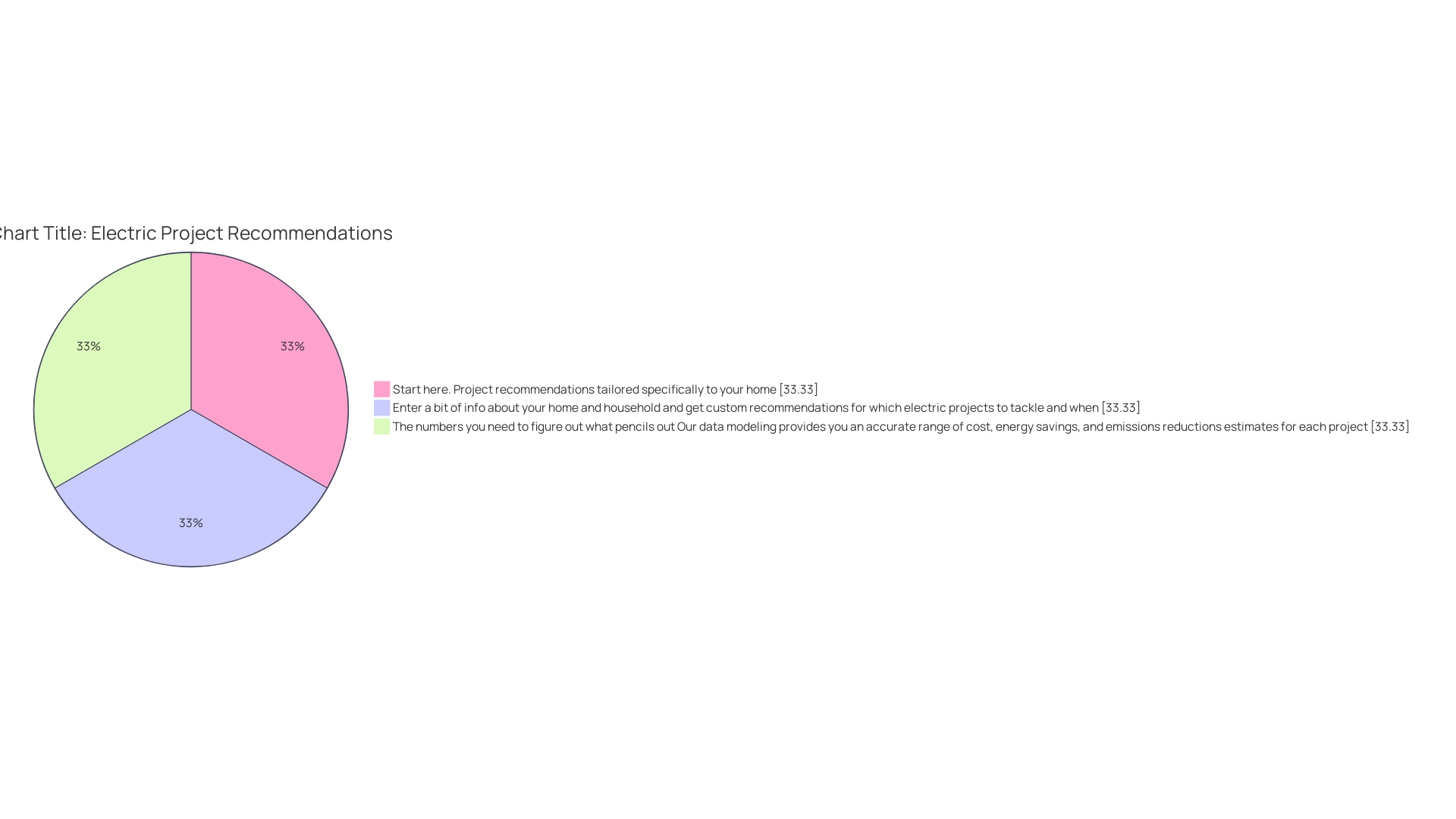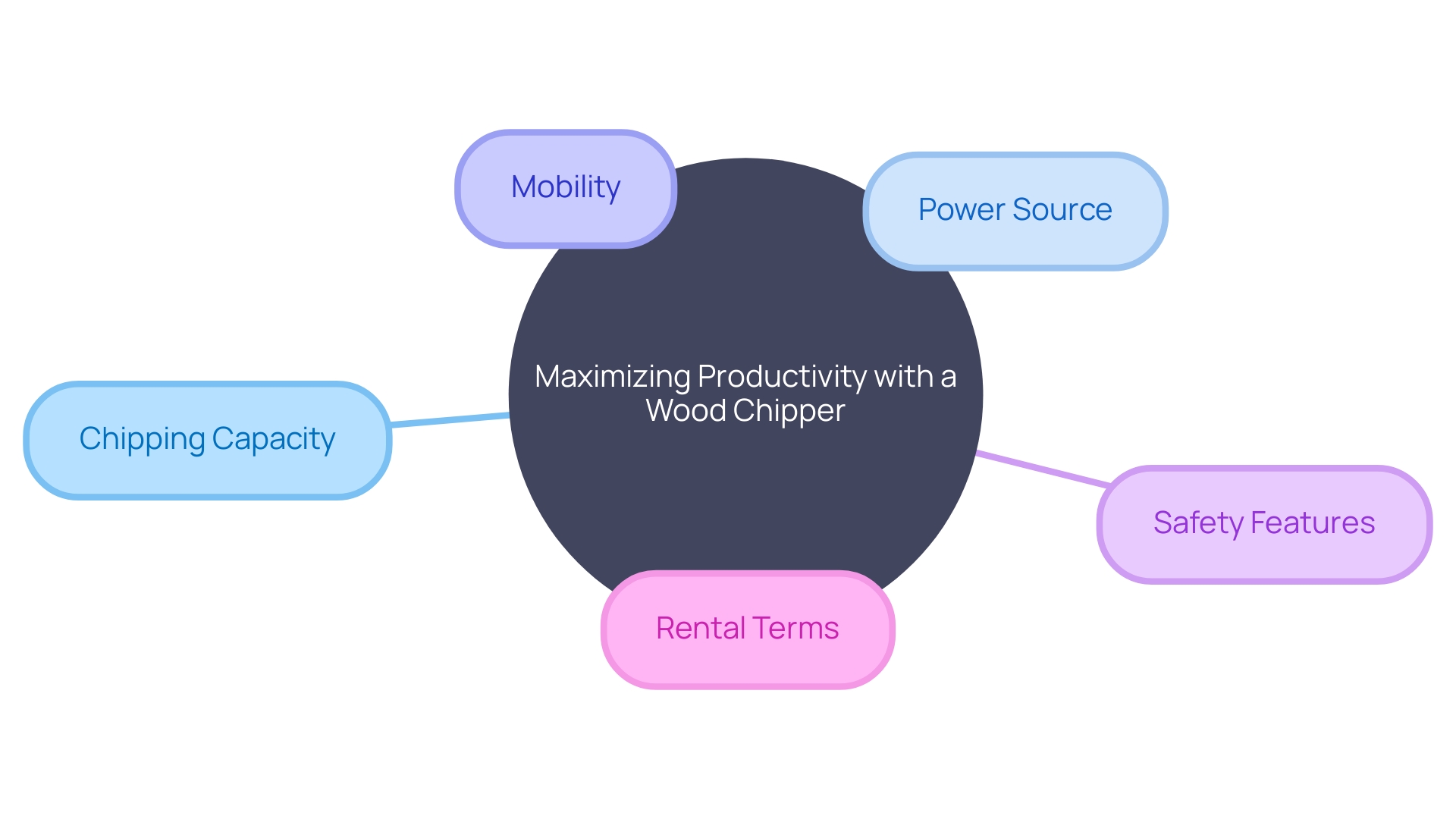Introduction
Wood chippers offer a solution to efficiently break down organic waste such as branches and logs into chips, providing easier disposal or repurposing options in landscaping and forestry. With the potential for economic benefits and ecological advantages, understanding the mechanics of a wood chipper and customizing its design can enhance its functionality and durability. Renting a wood chipper can be a strategic choice, allowing for cost savings, access to the latest models, and expert advice.
Selecting the right wood chipper involves considering factors such as chipping capacity, power source, mobility, safety features, and rental terms. To maximize efficiency with a rented wood chipper, proper material preparation, adherence to manufacturer's instructions, even feeding, routine maintenance, and periodic rests are crucial. These steps align with the increasing trend towards sustainable and efficient tools and equipment, leading to better economic outcomes.
What is a Wood Chipper?
Harnessing the full potential of rented wood chippers involves understanding not only the mechanics of the machine but also the ecological and economic benefits it can bring to the industry. A wood chipper is constructed to efficiently break down organic waste such as branches and logs into chips, facilitating easier disposal or repurposing in landscaping and forestry. It's designed with a hopper for inserting the wood, cutting blades or knives to slice the material, and a collection unit to gather the resulting chips.
Recent analysis has highlighted that converting waste wood into long-lasting products is feasible and beneficial. Countries that focus on repurposing lower-grade wood for extended-life applications like engineered wood and bio-based insulation not only manage resources better but also potentially stimulate their industrial sectors. For example, Germany's state aid for wood fiber insulation has significantly boosted its market presence, emphasizing the benefits of such initiatives.
Furthermore, customizing the wood chipper's body can greatly improve its functionality. A tailored design can lead to increased durability against harsh conditions, which is especially important when facing extreme weather events. These modifications do not just enhance the machine's aesthetics and longevity but can also provide significant branding opportunities for companies.
With the implementation of sustainable practices and custom enhancements, the utilization of wood chippers becomes more than just a matter of waste management—it becomes part of a broader strategy for environmental responsibility and economic efficiency in resource use. In fact, during the National Forest Products Week, the importance of forest-derived products is celebrated, highlighting that these items remain environmentally friendly throughout their lifecycle, which is a compelling argument for incorporating wood chips into longer-lasting products.
It's clear that the proper use and adaptation of wood chipping machinery align with the goals of environmental sustainability and add value to wood waste, thereby contributing positively to the global movement towards cleaner, more conscientious energy and material use.
Benefits of Renting a Wood Chipper
Opting to rent a wood chipper can bring several strategic advantages, especially when managing budgets wisely and effectively is crucial. Initially, renting can result in considerable cost savings, particularly for those infrequent projects. Instead of allocating sizable capital upfront and managing the continuous expenditure for maintenance and storage inherent to ownership, renting offers a more economical alternative.
Moreover, the ability to rent the latest models translates into access to recent technical enhancements that can boost performance and productivity substantially. Tailoring your equipment choice to the project scale and type becomes effortless, providing the opportunity to scale up or down as per the task at hand. Importantly, rental companies frequently offer expert advice, ensuring you select the most suitable wood chipper for the material volume and nature of the job, which is instrumental in achieving efficient outcomes.

How to Choose the Right Wood Chipper for Your Needs
Maximizing productivity starts with choosing the right tools for the job. When it comes to wood chippers, several key factors should be evaluated to ensure you're getting the most out of your equipment rental:
-
Chipping Capacity: It's vital to match the wood chipper's capacity with the size of materials you intend to process. Assessing the diameter of logs and branches you'll encounter on the job allows for an efficiently planned workflow.
-
Power Source: The power source is another essential consideration. Electric, gas, and diesel wood chippers offer different advantages, with electric options being heralded for their reduced emissions and quiet operation, contributing to a safer and more sustainable work environment.
-
Mobility: Worksite versatility often requires equipment that can be easily moved. Select a wood chipper featuring transport-friendly designs, such as built-in wheels or towing capabilities, to facilitate movement across various locations.
-
Safety Features: Prioritizing the safety of your workforce is non-negotiable. Wood chippers equipped with emergency stops, safety guards, and automatic shut-offs can significantly mitigate the risk of accidents, aligning with industry best practices for operational safety.
-
Rental Terms: Finally, scrutinize the rental terms from various suppliers. Evaluate the duration, cost, and included services such as delivery and pick-up. Favorable rental agreements and responsive customer support can greatly enhance the overall efficiency of your project management efforts.
Leveraging these considerations will not only help in streamlining your project's needs but will also align with the increasing trend towards sustainable and efficient tools and equipment, as observed in industries like pulp and paper, known for their rapid adoption of advanced technological solutions.

Tips for Maximizing Efficiency with a Rented Wood Chipper
Optimizing the use of a rented wood chipper involves several crucial steps that can significantly enhance operational efficiency. Firstly, properly preparing the materials is essential—trim any excessively knotted branches or irregularly shaped logs that might jam or damage the machinery, and cut down larger items for easier handling.
Secondly, getting familiar with the manufacturer's instructions cannot be overstressed. Knowing the machinery's limits and safety features is just as critical as understanding its operational capabilities, ensuring not only efficient usage but also safety on the job site.
Thirdly, when feeding materials into the chipper, do so evenly and avoid overloading. Introduce the material gradually to maintain a steady chipping pace, much like maintaining a balanced feed in paper recycling plants where moisture content must be precise to avoid processing hiccups and financial loss. Just as these plants process tons of paper daily, ensuring efficiency can lead to substantial economic benefits and prevent material waste.
Fourthly, routine maintenance, such as clearing the hopper, chute, and cutting mechanisms of obstructions, ensures uninterrupted operation. This is akin to the ongoing management required in green infrastructure—maintaining natural areas demands consistent vigilance to avoid energy and productivity declines due to work equipment misuse.
Lastly, allow both the equipment and the operator to rest periodically to prevent overheating—a common cause for decreased performance in both machinery and laborers. Implementing these methods can lead to significant economic gains, akin to industries that have adjusted to new regulations by investing in technology to streamline operations and leverage efficiency for better economic outcomes.
Conclusion
In conclusion, harnessing the full potential of rented wood chippers involves understanding their mechanics and the ecological and economic benefits they bring to the industry. Customizing the design of a wood chipper can improve its functionality and durability, allowing for increased efficiency and branding opportunities. Moreover, repurposing waste wood into long-lasting products contributes to resource management and stimulates industrial sectors.
Renting a wood chipper offers several strategic advantages. It allows for cost savings, access to the latest models with technical enhancements, and expert advice to select the most suitable chipper for the job. Choosing the right wood chipper involves considering factors such as chipping capacity, power source, mobility, safety features, and rental terms.
Aligning these considerations with sustainable and efficient practices fosters better economic outcomes and environmental responsibility.
Maximizing efficiency with a rented wood chipper requires proper material preparation, adherence to manufacturer's instructions, even feeding, routine maintenance, and periodic rests. Trimming branches and logs, following safety protocols, maintaining a balanced feed, performing maintenance, and allowing for rest periods all contribute to operational efficiency and economic benefits.
By understanding the mechanics, benefits, and customization options of wood chippers, along with selecting the right chipper for the job and maximizing efficiency, stakeholders can contribute to the global movement towards cleaner energy and material use while achieving cost savings and ecological advantages.




